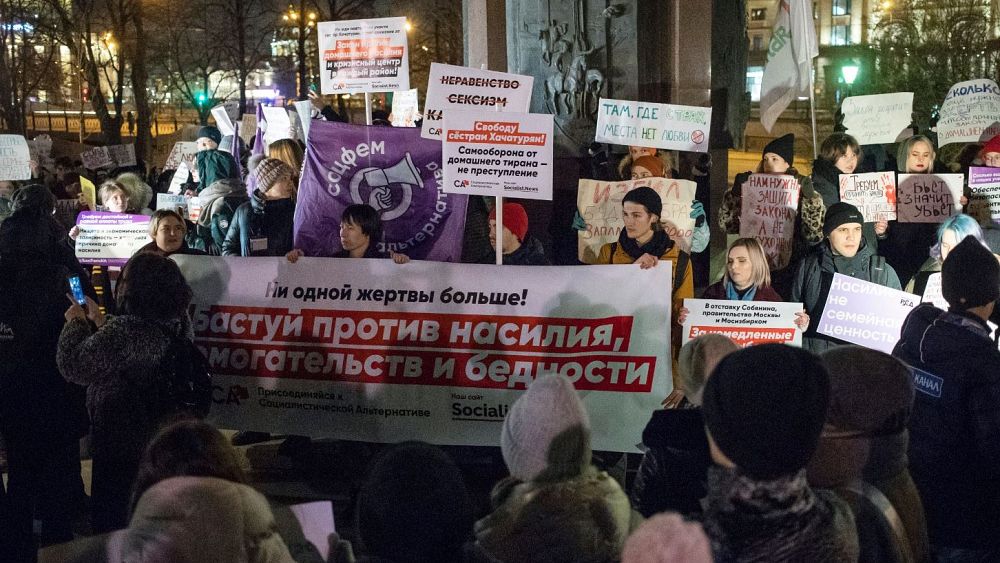
The European Court of Human Rights has urged Russia to tackle the “staggering scale” of domestic violence against women.
Judges have called on Moscow to introduce new measures amid “systematic problems in securing prosecutions and convictions”.
The ruling came after a case involving four Russian women, who had suffered abuse from their partners.
The European court said that Russian authorities had failed to protect them from violence and respond to their cases appropriately.
One of the women was kidnapped by her husband in 2017 and had her hands chopped off with an axe in a forest. She later regained limited function only in her left hand, while her husband was sentenced to 14 years in prison.
Moscow was ordered to pay the four women a total of over €450,000 in damages, medical expenses, and legal fees.
The court recommended that Russia make “urgent changes to domestic law and practice to prevent similar violations.”
Judges have urged Russia to introduce a legal definition of domestic violence in various forms, as well as restraining and protective orders.
Mari Davtyan — a lawyer and women’s rights activist who represented two women in the case — has hailed the ruling.
“It is not the first time the court notes Russia’s failure to fulfill its obligations on protection from domestic violence, but this time the court clearly and in detail pointed out measures Russia must adopt,” Davtyan said in a Facebook post.
Previous attempts to create measures against domestic violence that would prevent these crimes from happening have faced resistance from Russian authorities.
Assault against a family member is currently only classified as a misdemeanor — punishable by a fine of only around €60 — after the law was eased in 2017.
Valentina Matviyenko, the speaker of the upper house of Russia’s parliament, acknowledged in 2019 that rampant domestic violence was a problem in Russia and vowed to have a domestic violence bill by the end of the year.
But conservative groups and the Russian Orthodox Church have argued that the state shouldn’t interfere in family matters, and a draft bill was never voted on.